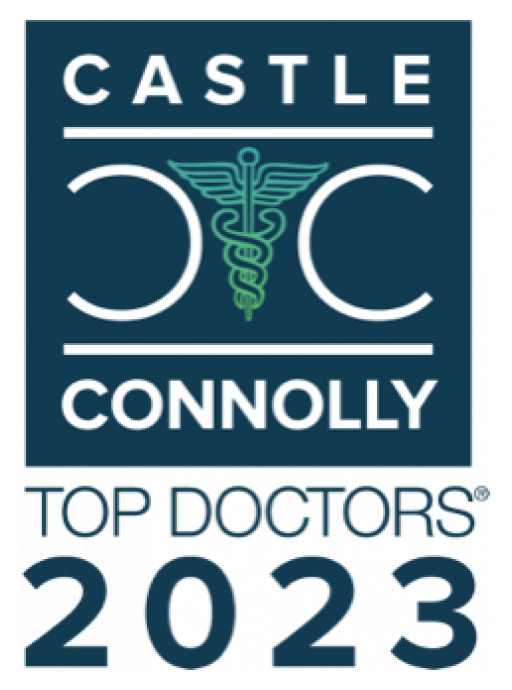As summer winds down, the excitement and anticipation of a new school year begins. For parents of children with allergies or asthma, this period can also bring concerns about how to manage these conditions in a school setting. Proper preparation and communication are key to ensuring your child’s safety and well-being throughout the school year. Here at Premier Allergy, Asthma, & Sinus Care, we’re experts in treating kids of all ages. Check out our comprehensive guide to help you prepare your child with allergies or asthma for a successful and healthy school year.
1. Schedule a Pre-School Checkup
Before school starts, schedule an appointment with your child’s allergist or pediatrician. While it may seem early to do, since it’s only August, this is the busiest time of the year for allergy providers and their offices so scheduling early is important. This visit can help ensure your child’s asthma or allergies are well-controlled and their treatment plan is up-to-date. Discuss any recent changes in symptoms or medications and get a written asthma action plan or allergy management plan to share with the school.
2. Update Medical Documentation
Ensure all medical documentation is current and accurately reflects your child’s needs. This includes:
-
Asthma Action Plan: A detailed plan outlining your child’s asthma triggers, symptoms, medications, and emergency procedures.
-
Allergy Action Plan: Similar to the asthma action plan, this document should detail your child’s allergens, symptoms, medications (such as antihistamines or epinephrine), and steps to take in case of an allergic reaction.
Make copies of these documents to provide to the school nurse, teachers, and any other relevant staff.
3. Communicate with School Staff
Arrange a meeting with the school nurse, your child’s teachers, and any other relevant staff members before the school year begins. During this meeting, discuss your child’s condition, triggers, medications, and emergency procedures. Make sure everyone involved understands how to recognize symptoms and what steps to take if an issue arises.
4. Educate Your Child
Empower your child by teaching them about their condition and how to manage it. Depending on their age, they should know:
-
The names and dosages of their medications.
-
How to recognize the early signs of an allergic reaction or asthma flare-up.
-
When and how to use their medications, such as inhalers or epinephrine auto-injectors.
-
The importance of avoiding known triggers and how to communicate with adults if they feel unwell.
5. Prepare Medications and Supplies
Ensure your child has all necessary medications and supplies, both at home and school. This includes:
-
Asthma Inhalers: Provide the school with a spare inhaler and spacer if needed.
-
Epinephrine Auto-Injectors: Supply the school with at least two epinephrine auto-injectors, and ensure they are stored in an accessible but safe location.
-
Antihistamines: Provide the school nurse with any oral antihistamines your child may need.
-
Nebulizers and Peak Flow Meters: If your child uses these devices, consider leaving a set at school.
Check expiration dates on all medications and replace them as needed.
6. Plan for Lunch and Snacks
For children with food allergies, the school cafeteria can be a source of anxiety. Take the following steps to ensure your child’s meals are safe:
-
Meet with Cafeteria Staff: Discuss your child’s food allergies and provide a list of safe and unsafe foods. Review the cafeteria menu and ingredient lists.
-
Provide Safe Snacks: Pack safe snacks and lunches from home if necessary. Include a note with any special instructions for teachers or lunchtime monitors.
-
Teach Food Safety: Educate your child on the importance of not sharing food and always checking labels for allergens.
7. Prepare for Field Trips and Extracurricular Activities
Field trips and extracurricular activities can expose your child to new environments and potential triggers. Ensure their safety by:
-
Providing Medications: Ensure the teacher or chaperone has access to your child’s medications and knows how to use them.
-
Communicating with Organizers: Inform trip organizers and coaches about your child’s condition and provide a copy of their action plan.
-
Packing Essentials: Pack a bag with your child’s medications, snacks, and any other necessary supplies for the trip or activity.
8. Teach Good Hygiene Practices
Good hygiene can help minimize exposure to allergens and reduce the risk of infections, which can exacerbate asthma. Teach your child:
-
Hand Washing: Wash hands before eating, after playing outside, and after using the restroom.
-
Avoiding Touching Face: Encourage them to avoid touching their face, especially their eyes, nose, and mouth.
-
Using Hand Sanitizer: Provide hand sanitizer for times when hand washing isn’t possible.
9. Monitor Air Quality and Triggers
Schools may not always have control over environmental factors that can trigger asthma or allergies, such as air quality or classroom pets. Stay informed about:
-
Air Quality: Check local air quality reports and consider keeping your child indoors on days when air quality is poor.
-
Classroom Environment: Ensure your child’s classroom is free of potential triggers like mold, dust mites, and strong odors.
10. Build a Support Network
Encourage open communication and cooperation between you, your child, school staff, and healthcare providers. Building a support network ensures everyone is informed and prepared to handle any situation that arises.
11. Regularly Review and Update Plans
Conditions and treatments can change over time. Regularly review and update your child’s asthma or allergy action plan with their healthcare provider and the school to ensure everyone is on the same page.
Preparing your child with allergies or asthma for back to school involves careful planning, communication, and education. By taking these steps, you can help ensure your child’s safety and allow them to focus on what really matters—learning and enjoying their school experience. With the right preparation, your child can have a healthy, safe, and successful school year. The school year is right around the corner, so we recommend getting ahead of the game and booking the appointment for your child now. At Premier Allergy, Asthma, & Sinus Care, we want you both to be as prepared as possible for this exciting upcoming time.





